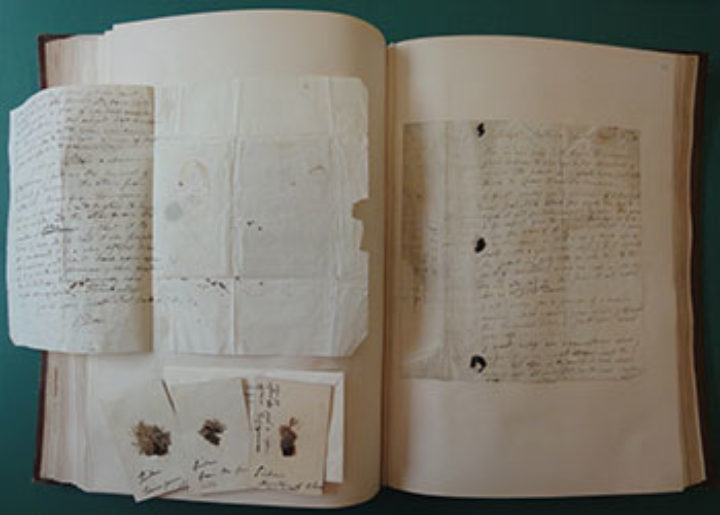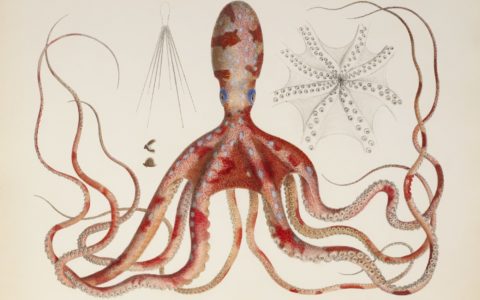October 2013: Conserving George Don’s letters
Published on 7th October 2013
Conserving George Don’s letters
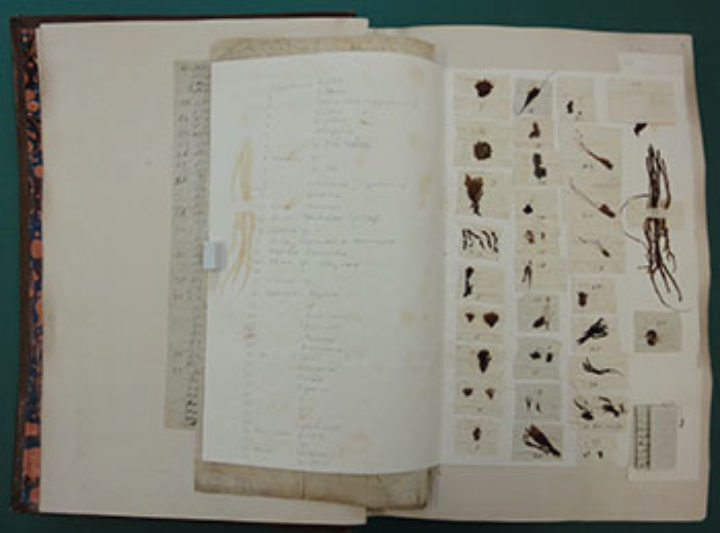
During the conservation of the Correspondence of Sir James Edward Smith, an interesting volume of letters and botanical specimens has been dis-bound and repaired.
The majority of the letters in the volume are between Smith and a Scottish botanist called George Don [1764-1814]. Don travelled widely in Scotland collecting and studying plants, and had a particular interest in the bryology of Scotland.
He was a nurseryman running his own garden, and provided specimens to botanists as well as supplying produce to local people. In 1802 he took position as Superintendent of RBG Edinburgh and was elected
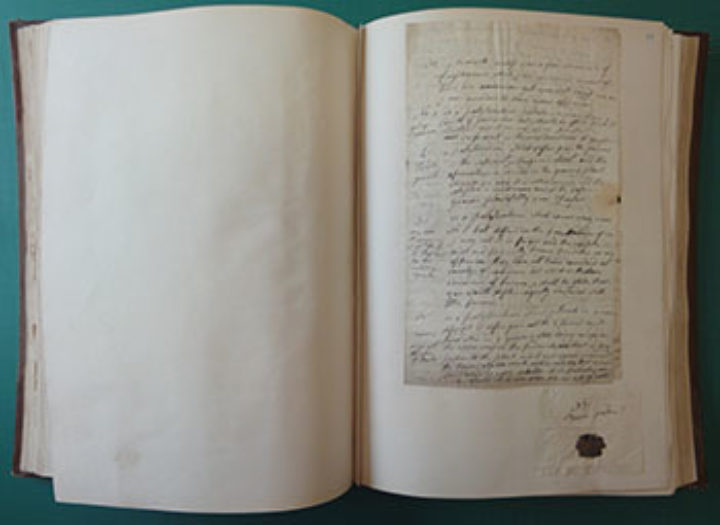
George Don’s letters have been cleaned, removed from the unsuitable bindings and repaired. Some of the letters were too large for the volume and were folded to fit. This has caused tears and areas of paper to become weak; there was also significant heavy surface dirt on many of the letters, which has now been carefully removed. The letters and specimens will all be incorporated into hand-made fascicules, which will protect them more adequately and provide better access for researchers.
Some of the botanical specimens contained within the volume were adhered directly to a more modern paper, indicating some conservation measures have been applied relatively recently. However very few specimens were in their original wrappings and none were physically adhered to the letters, although staining showed that they had originally been received loosely wrapped in the letter. All fragments have been retained and some specimens have had custom housing created to enclose and protect them.
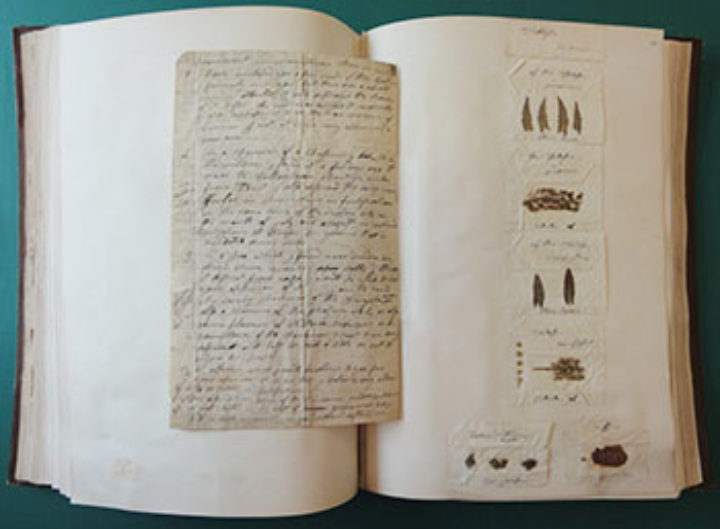
Many archives separate their biological material from the paper collections to prevent damage to both the paper items and specimens. Keeping biological material with the letters does provide important historical information. However, brittle specimens can be damaged very easily with the flexing of the paper supports they are attached to, cause damage to the paper itself and are potentially attractants to pests. These issues are always carefully considered and in this case it has been decided to retain the specimens in situ with the archival material. The Linnean Society’s environmentally controlled Wolfson Archive Room is the perfect place to store these valuable and historical collections.
George Don’s sons also continued the family’s involvement in botany working as gardeners at places such as the Chelsea Physic Garden and Knole Park in Kent. His son David Don was also clerk, Librarian and housekeeper at the Linnean Society from 1822-1841.
